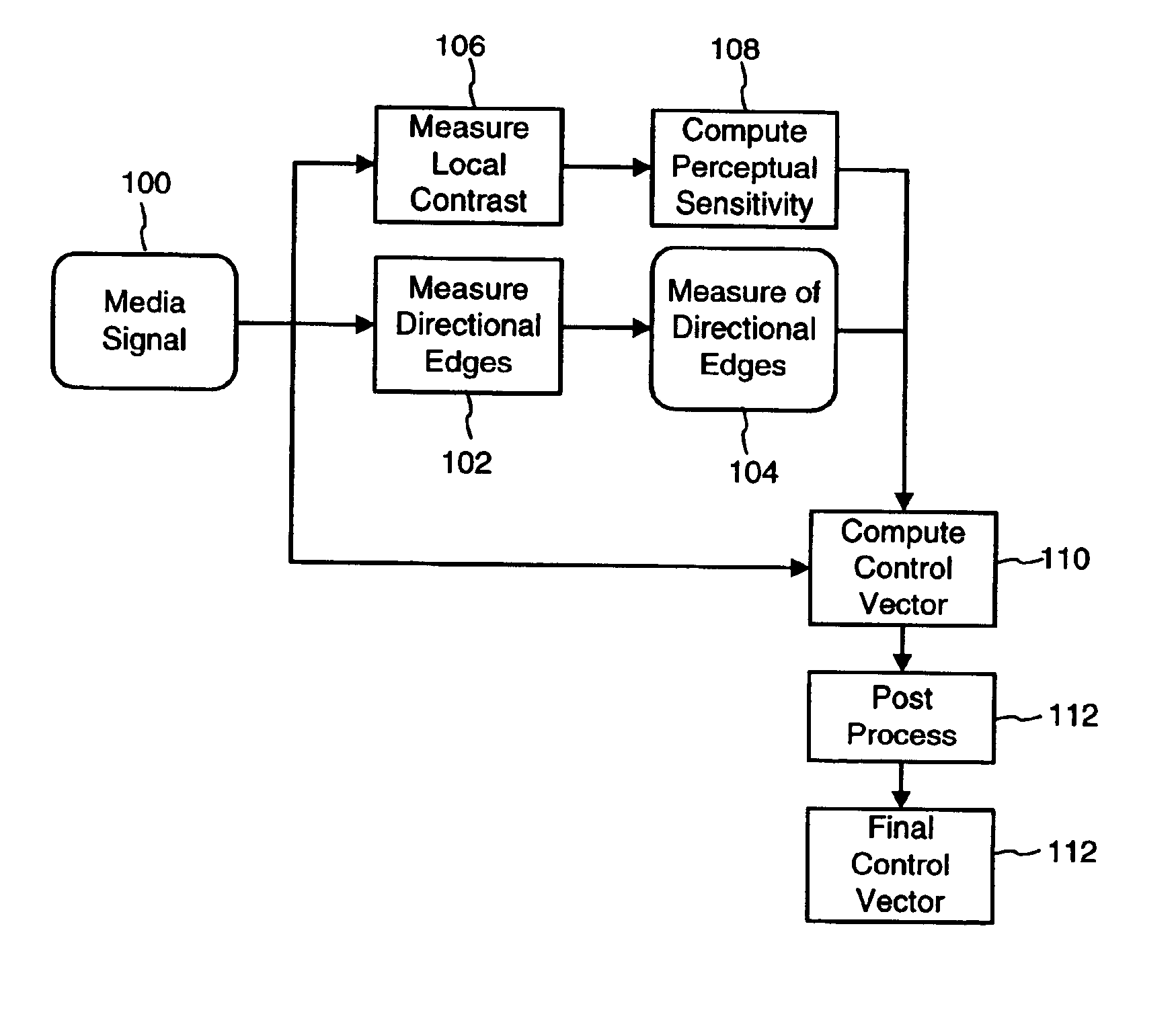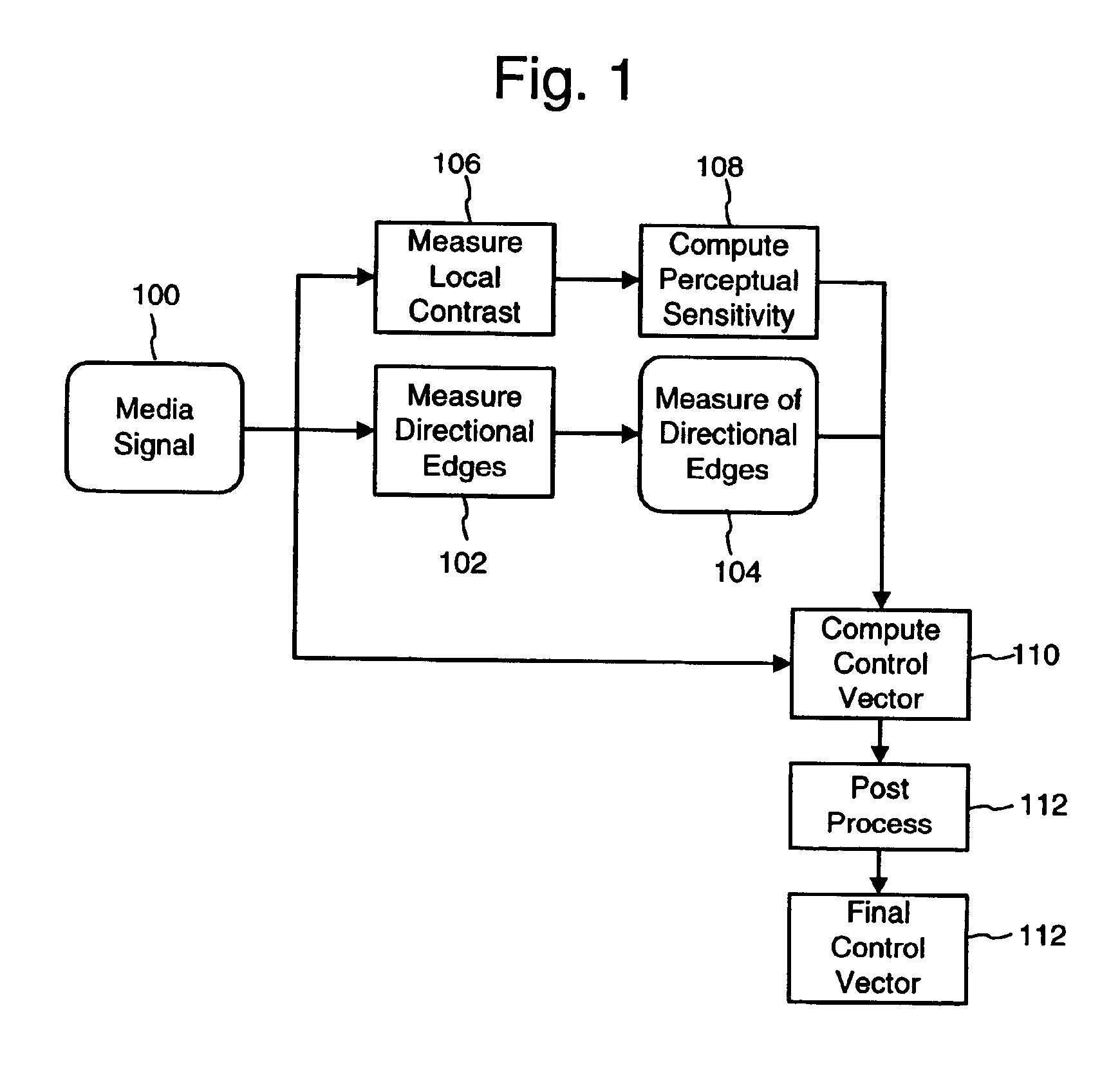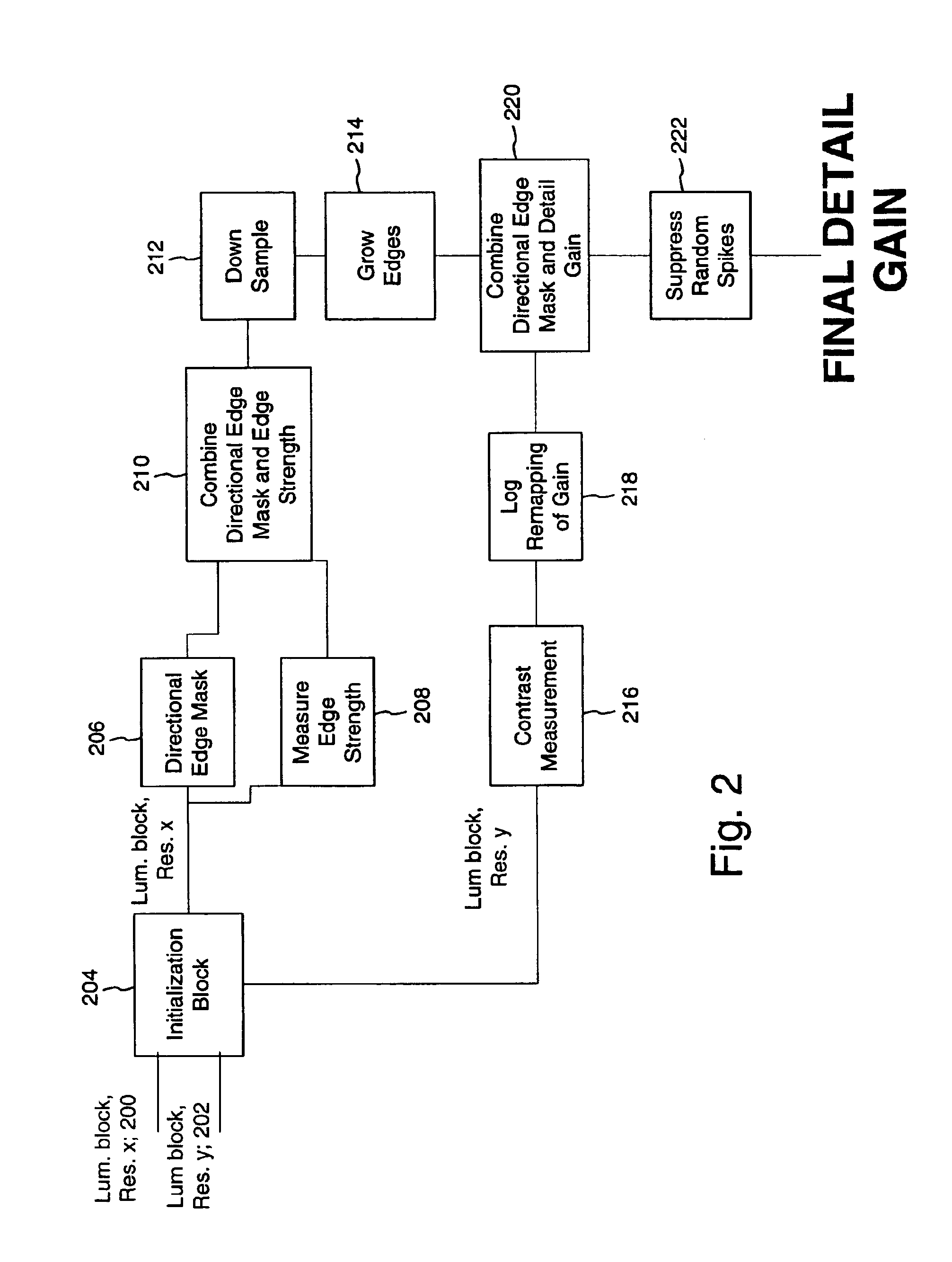Perceptual modeling of media signals based on local contrast and directional edges
a technology of perception modeling and media signals, applied in the field of multimedia signal processing, can solve the problems of memory or bandwidth required to store, and the visible appearance of objectionable watermarks or ‘ringings’, so as to increase the signal strength of watermarks, the effect of reducing the risk of ringings and affecting the quality of signals
- Summary
- Abstract
- Description
- Claims
- Application Information
AI Technical Summary
Benefits of technology
Problems solved by technology
Method used
Image
Examples
Embodiment Construction
[0020]FIG. 1 is a diagram illustrating a method for perceptual analysis of a media signal. The following discussion describes this method as applied to still image signals. However, the principals of the method are applicable to video and audio signals as well. This method includes perceptual modeling based on local contrast and directional edges. The result of this perceptual modeling may be combined with other forms of perceptual modeling. In addition, perceptual modeling based on local contrast and directional edges may be used independently.
[0021]The input to the perceptual analysis is a media signal 100, such as an image or audio signal. For the sake of an example, we describe an implementation for still images. In this case, the media signal is an image or part of an image. One aspect of the perceptual analysis 102 computes a measure of directional edges (104) at positions throughout the media signal. The method uses this measure to compute data to control changes to the input...
PUM
 Login to View More
Login to View More Abstract
Description
Claims
Application Information
 Login to View More
Login to View More - R&D
- Intellectual Property
- Life Sciences
- Materials
- Tech Scout
- Unparalleled Data Quality
- Higher Quality Content
- 60% Fewer Hallucinations
Browse by: Latest US Patents, China's latest patents, Technical Efficacy Thesaurus, Application Domain, Technology Topic, Popular Technical Reports.
© 2025 PatSnap. All rights reserved.Legal|Privacy policy|Modern Slavery Act Transparency Statement|Sitemap|About US| Contact US: help@patsnap.com



